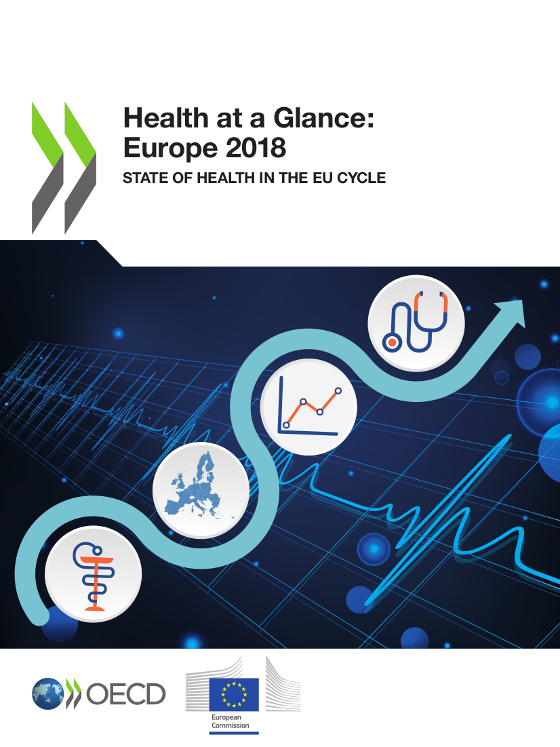 Health at a Glance: Europe 2018, the first step in the State of Health in the EU cycle, is the result of close co-operation between the OECD and the European Commission.The preparation of this publication was led by the OECD, and the Commission provided guidance and technical support throughout the process. This publication would not have been possible without the effort of national data correspondents from the 36 countries who have provided most of the data and the metadata presented in this report, and financial support provided by the European Union. This publication also benefitted from many useful comments from members of the Commission's Expert Group on Health Information (EGHI), as well as from several officials in the European Centre for Disease Prevention and Control (ECDC), the Joint Research Centre (JRC) and the European Monitoring Centre for Drugs and Drug Addiction (EMCDDA).
Health at a Glance: Europe 2018, the first step in the State of Health in the EU cycle, is the result of close co-operation between the OECD and the European Commission.The preparation of this publication was led by the OECD, and the Commission provided guidance and technical support throughout the process. This publication would not have been possible without the effort of national data correspondents from the 36 countries who have provided most of the data and the metadata presented in this report, and financial support provided by the European Union. This publication also benefitted from many useful comments from members of the Commission's Expert Group on Health Information (EGHI), as well as from several officials in the European Centre for Disease Prevention and Control (ECDC), the Joint Research Centre (JRC) and the European Monitoring Centre for Drugs and Drug Addiction (EMCDDA).
Health at a Glance: Europe 2018 presents comparative analyses of the health status of EU citizens and the performance of the health systems of the 28 EU Member States, 5 candidate countries and 3 EFTA countries. It is the first step in the State of Health in the EU cycle of knowledge brokering. This publication has two parts. Part I comprises two thematic chapters, the first focusing on the need for concerted efforts to promote better mental health, the second outlining possible strategies for reducing wasteful spending in health. In Part II, the most recent trends in key indicators of health status, risk factors and health spending are presented, together with a discussion of progress in improving the effectiveness, accessibility and resilience of European health systems.
Download: Health at a Glance: Europe 2018 (10.630 KB).
Download from eHealthNews.eu: Health at a Glance: Europe 2018 (10.630 KB).